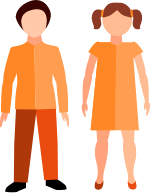ABOUT THE SINGAPORE JUDICIARY
The Judiciary is one of the three Organs of State, together with the Executive and the Legislature.
The Judiciary is made up of the Supreme Court, State Courts and Family Justice Courts, collectively known as the Singapore Courts. The Honourable the Chief Justice is the head of the Judiciary, who also oversees the Supreme Court.

The Supreme Court is headed by the Chief Justice. The Supreme Court consists of the Supreme Court Bench, Supreme Court Registry and Singapore Judicial College, and is supported by the Judicial Administration team. It hears both civil and criminal cases and is made up of the Court of Appeal and the High Court, which includes the Singapore International Commercial Court.
Comprises the General Division and the Appellate Division of the High Court.
- Hears all criminal appeals against decisions made by the General Division of the High Court in the exercise of its original criminal jurisdiction.
- Hears prescribed categories of civil appeals and appeals that are to be made to the Court of Appeal under written law.
Hears all civil appeals that are not allocated to the Court of Appeal under the Sixth Schedule to the Supreme Court of Judicature Act. It also hears any civil appeals or other processes that any written law provides is to be heard by the Appellate Division.
Exercises original and appellate jurisdiction in civil and criminal cases. It also exercises revisionary jurisdiction over the State Courts in criminal cases. It hears cases in the first instance as well as cases on appeal from the State Courts. Types of cases heard by the General Division include:
- Civil cases where the value of the claim exceeds $250,000.
- Criminal cases where offences are punishable with death or an imprisonment term exceeding 10 years.
- Admiralty matters.
- Company winding-up and other insolvency-related proceedings.
- Bankruptcy proceedings.
- Applications for the admission of advocates and solicitors.
Appeals arising from a decision of the General Division in civil matters will be allocated between the Appellate Division and the Court of Appeal in accordance with the statutory framework set out in the Supreme Court of Judicature Act.
- Hears and tries actions which are international and commercial in nature, in accordance with Section 18D(1) of the Supreme Court of Judicature Act.
- Hears and tries proceedings relating to international commercial arbitration, in accordance with Section 18D(2) of the Supreme Court of Judicature Act.
- Includes cases commenced in the SICC or transferred from the General Division to the SICC.
The State Courts are headed by the Presiding Judge of the State Courts, who is assisted by the Deputy Presiding Judge, Principal District Judges, Registrar and senior court administrators. District Judges and Magistrates preside over the District Courts and Magistrates’ Courts respectively, and may hold concurrent appointments as Deputy Registrars, Coroners, Tribunal Judges and Tribunal Magistrates.

Hear claims not exceeding $20,000 or (if both parties consent in writing) $30,000 for disputes involving a contract for the sale of goods or provision of services, an unfair practice relating to a hire-purchase agreement, a tort in respect of damage caused to property, certain statutory claims, or a contract relating to a lease of residential premises not exceeding two years.

Hear disputes between neighbours involving unreasonable interference with the enjoyment or use of places of residence.

Hear salary-related claims and wrongful dismissal claims not exceeding $20,000 or (for tripartite-mediated disputes) $30,000.

Hears matters arising out of harassment, stalking and related anti-social behaviour, as well as false statements of fact.
The Family Justice Courts are headed by the Presiding Judge of the Family Justice Courts. They hear family cases and deal with the care and treatment of young persons, operating based on the principles of therapeutic justice.

- Exercises original jurisdiction and hears appeals against the decisions of the Family Courts and the Youth Courts in family proceedings.
- Hears ancillary matters in family proceedings involving assets of $5 million or more.
- Hears probate matters where the value of the deceased’s estate is more than $5 million or if the case involves the resealing of a foreign grant.

- Divorce.
- Probate and administration.
- Maintenance.
- Protection against family violence.
- Deputyship.
- Adoption.
- Protection for vulnerable adults.
- Guardianship.
- International child abduction.

Cases under the Children and Young Persons Act, i.e. Family Guidance, Youth Arrest, Care and Protection.

All cases coming before the Courts are managed proactively by judges from the start. Where necessary, the Courts can direct that parties undergo counselling and mediation to try and reach an amicable resolution of the dispute instead of proceeding with adjudication.
























